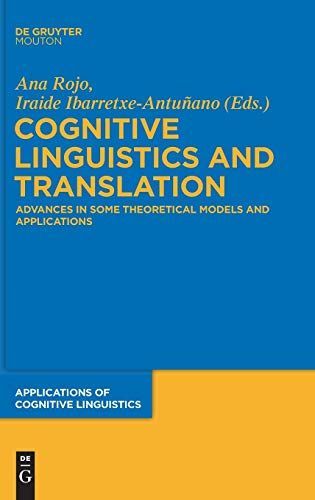
Cognitive Linguistics and Translation Advances in Some Theoretical Models and Applications
The papers compiled in the present volume aim at investigating the many fruitful manners in which cognitive linguistics can expand further on cognitive translation studies. Some papers (e.g. Halverson, Muñoz-Martín, Martín de León) take a theoretical stand, since the epistemological and ontological bases of both areas (cognitive linguistics and translation studies) should be known before specific contributions of cognitive linguistic to translation are tackled. Several works in the volume attempt to illustrate how some of the notions imported from cognitive linguistics may contribute to enrich our understanding of the translation process in a general translation problem such as metaphor (e.g. Samaniego), the relationship between form and meaning (e.g. Tabakowska, Rojo and Valenzuela) or cultural aspects (e.g. Bernárdez, Sharifian/Jamarani). Others use translation as an empirical field to test some of the basic assumptions of cognitive linguistics such as frames (e.g. Boas), metonymy (e.g. Brdar/Brdar-Szabó), and lexicalisation patterns (e.g. Ibarretxe-Antuñano/Filipovi?). Finally, another set of papers (e.g. Feist, Hatzidaki) opens up new lines of investigation for experimental research, a very promising area still underdeveloped.